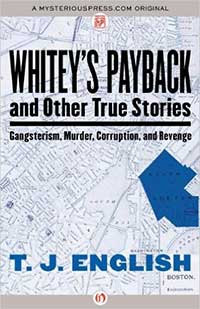As a journalist, English has written for many magazines and newspapers including: Esquire, Playboy, New York, The Village Voice, The Los Angeles Times, and The New York Times. Most of his articles are on the subject of crime and criminal justice, though English writes on a wide variety of subjects including music, politics, and movies.
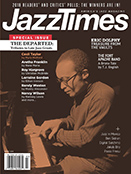
Fort Apache: The Good, the Bad, and the Beautiful
JazzTimes
March 2019
The 2018 death of Jerry González also marked the end of the Fort Apache Band, which took Latin jazz to new heights for more than 30 years. This is their story.
It's an overflow crowd at St. Peter’s Church – "the jazz church" – on Lexington Avenue in midtown Manhattan. Part cathedral, part music hall, St. Peter’s has served as the final memorial place for some of the greatest musicians of all time…
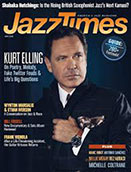
For The Love of Latin Jazz
JazzTimes
May 2018
The best-selling author and recent nightclub curator on the music that changed his life and continues to inspire his work.
Back when I drove a taxi in New York City, in the mid 1980's, the cabs had not yet been outfitted with air-conditioning. In the spring and summer, I left the windows open to create cross-ventilation. That meant the noise from the street was a constant presence, and orchestral cacaphony dominated by honking horns, sirens, jackhammers, and music. The music that pierced through all other sounds and soothed my urban soul was Latin-jazz...
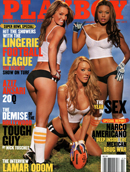
Narco Americano
Playboy
February 2011
Juárez, the bloody ground zero for the Mexican drug war: two American citizens - a U.S. Consulate employee and her husband - are brutally assassinated in the middle of the day. The message from the cartels? More violence is coming, and no one is safe.
The killings take place in a crowded area in Ciudad Juárez, Mexico, mid-afternoon...

DOPE
Playboy
December 2009
Lee Lucas rose through the ranks of the DEA the old-fashioned way — employing shoddy evidence, partnering with thugs and abusing the authority of his position.
Geneva France remembers vividly the day a task force of federal narcotics agents came pounding at her front door. It was six a.m. and she was about to get her kids ready for school. Her third child, 21 months old, was barely out of the crib...
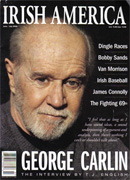
George Carlin: Is Still Tossing Out The Good Stuff
Irish America
June-July 2006
Once the quintessential seventies hippie comedian, George Carlin continues to evolve and grow. In an intimate interview with T.J. English he shares stories of his upbringing, his Irish ancestors and his view of the world.
In the history of American stand-up comedy, there has never been anyone like George Carlin. Controversial, iconoclastic, irreverent, obscene — all of these words have been used to describe Carlin's act...

An Irishman Named English
Irish America
October-November 2005
Have you ever met an Irishman named English?
Well you have now. I open with this seemingly insignificant detail for one simple reason: All my life I've been taking a ribbing for being a proud Irish-American named English. Some people have a hard time believing that the name has Hibernian roots. The implication is that with a name like that a person would have to be... well, English...
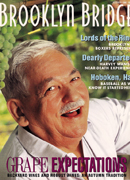
Hit Men
Brooklyn Bridge
October 1996
For generations, the streets of Brooklyn have produced some of boxing's leading contenders. What is it about the borough that sets young pugilists on the path to glory?
It is midway through the second round of his thirty-fourth amateur fight when George Walton, 22, feels the thwaaaack! of a sharp right jab greet him squarely in the face. "Damn!" Walton mumbles to himself. He feels a buzzing in his ears, a rush of nausea, and then rejuvenation — all in a matter of seconds...
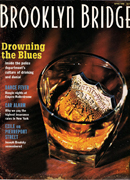
Drowning the Blues
Brooklyn Bridge
April 1996
It's certainly no secret that the NYPD has a drinking problem: the public knows it, the top brass admits to it and officers have even died because of it. So why is everyone still in denial?
Police Officer Ed Drivick remembers the exact moment he finally realized he was a stone-cold alcoholic. It was the day after an all-night drinking binge, which began with a beerfest at a meeting of the Emerald Society, the NYPD's renowned fraternal organization...

On the Defensive
New York
January 2, 1995
As the leading legal experts in DNA testing, Peter Neufeld and Barry Scheck specialize in freeing the wrongfully convicted. But have they lost their purity by joining the O.J. circus?
Attorneys Peter Neufeld and Barry Scheck are seated in Neufeld's lower-Manhattan office, a compact, no-frills cubicle on the fifth floor of a cavernous complex on Duane Street. "Yes, there are high-roller defense attorneys in this city," Neufeld is saying. "You know who they are. We ain't them"...

La Cosa Nostra Takes The Big Hit
Playboy
September 1992
The Mafia's official bird — the stool pigeon — is singing a treacherous song.
By the time Mafia capo Peter Chiodo looked up from under the hood of his Cadillac, he had already been shot once in the ass. Weighing in at 547 pounds, Chiodo was an easy target. On a clear afternoon in May 1991, after he had stopped at Pellicano's gas station on Staten Island to check his engine, a car screeched into the station and two men jumped out, guns ablaze...

Hong Kong Outlaws
Playboy
June 1992
From their base in Asia, the Chinese Triads have taken over rackets around the world. Now they are coming to America.
Needle in hand, the junkie named Africa searches his arm for a vein. Any vein will do. "Tie off, motherfucker.", his friend Leon reminds him. In his haste to satisfy his need, Africa has forgotten one of the most elementary junkie rituals: wrapping a strip of rubber cord around his bicep so that his veins bulge. That task accomplished, he pierces his right arm...
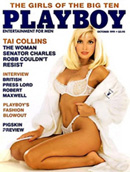
Rude Boys
Playboy
October 1991
By beating the Italian mob at their own games — drugs and violence — Jamaican outlaws have become a brutal bloody force in gangland Amerca.
The raid began as a faint wail, barely audible over the evening hubbub on the streets of Brooklyn. In Crown Heights, an impoverished community well acquainted with the ravages of the drug trade, the sound of approaching sirens was nothing new. But on this particular evening, the residents took special notice as the sirens got closer and louder...
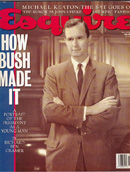
Cain and Abel in the Skin Trade
Esquire
June 1991
Jim and Artie Mitchell were sexual revolutionaries, rich hippie pornographers, San Francisco righteous dudes, brothers to the end.
In a city accustomed to spectacular endings— where ritualistic cult killings, political assassinations, savage whims of God, and run-of-the-mill urban mayhem have all been absorbed into the local lore — it was still a shocker...

The Wise Guy Next Door
Playboy
April 1991
The Witness Protection Program has a remarkable purpose: to hide hardened criminals among the general public. What could possibly go wrong?
It was nearly 21 years ago that Michael Raymond, a beefy, Brooklyn-bred conman and stock swindler, got into a tight spot with the law. After a lengthy trial in Illinois state court, he received a four-year prison term for trying to use stolen Treasury notes to buy two mall Midwestern banks...
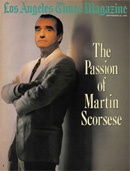
The Passion of Martin Scorsese
Los Angeles Times Magazine
September 23, 1990
Martin Scorsese eats, sleeps, breathes and dreams movies, shot by shot.
When Martin Scorsese was 8 years old, he drew. Sketches mostly, elaborate shot-by-shot renderings of flicks he'd seen at the local movie theater. Sometimes they were movies that existed only in his imagination, to be recreated on paper. Drawn in pencil and crayon, they were titled "Directed and Produced by Martin Scorsese." By the age of 12, Martin was drawing colorful Bible epics and Westerns, grappling with how to compose his comic-book panels so as to achieve maximum visual effect...


